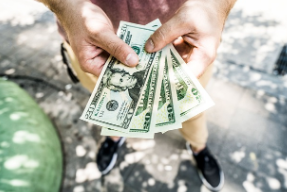The Psychology of Money: How Emotions Impact Spending
1. Money = Emotions, Not Just Math
-
Money is tied to our identity, security, upbringing, and even self-worth.
-
We often spend based on how we feel, not what we need.
“We don’t buy things with money—we buy them with hours of our life.”
— Vicki Robin, Your Money or Your Life
2. Emotional Triggers That Drive Spending
😩 Stress Spending
-
Retail therapy feels good in the moment but can lead to guilt later.
-
Common after bad days, breakups, work burnout.
🏆 Reward Spending
-
“I deserve this” after hard work, dieting, or success.
-
Problem? It becomes a default reward system.
📱 FOMO + Social Media
-
Seeing friends’ vacations or luxury items can trigger spending to “keep up.”
-
Remember: You’re comparing your behind the scenes to someone else’s highlight reel.
🧒 Childhood Money Messages
-
Were you taught “money doesn’t grow on trees” or “spend it while you have it”?
-
These early beliefs shape adult behavior—often subconsciously.
3. Common Money Mindsets (a.k.a. Money Scripts)
| Money Script | Behavior It Fuels |
|---|---|
| 💸 Money Avoidance | Avoids budgeting or bills |
| 🏃♂️ Money Worship | Believes more money = more happiness |
| 🤝 Money Status | Self-worth = net worth |
| 🧘 Money Vigilance | Hyper-frugal, anxious about spending |
→ None are “bad,” but understanding your dominant script helps you rewrite it.
4. How to Control Emotional Spending
✍️ Practice “Pause + Reflect”
-
Before a purchase, ask:
-
“Do I want this, or do I need it?”
-
“Am I feeling emotional right now?”
-
“Will I still want this in 24 hours?”
-
📓 Track Emotional Purchases
-
Keep a journal or note in your phone.
-
Over time, you’ll spot patterns (e.g. always buying after stressful meetings or late at night).
🧘 Practice Mindful Spending
-
Align purchases with your values, not your impulses.
-
Example: Instead of buying random stuff, spend on things that bring lasting joy or growth (travel, education, experiences).
5. Build a “Guilt-Free Spending Plan”
-
Allocate a small % of your budget for fun or splurges.
-
Knowing you can spend without guilt reduces impulsive overspending.
6. Celebrate Progress (Not Just Results)
-
Financial wins aren’t just about reaching a goal.
-
Celebrate:
-
Saying no to an impulse buy
-
Hitting a weekly budget
-
Checking your bank account without anxiety
-
7. Replace the Dopamine
-
Shopping = dopamine hit.
-
Replace that habit with free or lower-cost joy boosts:
-
Go for a walk
-
Listen to music
-
Text a friend
-
Journal your win of the day
-
🌱 Final Thought:
Getting better with money isn’t just about numbers—it’s about healing your relationship with it.
